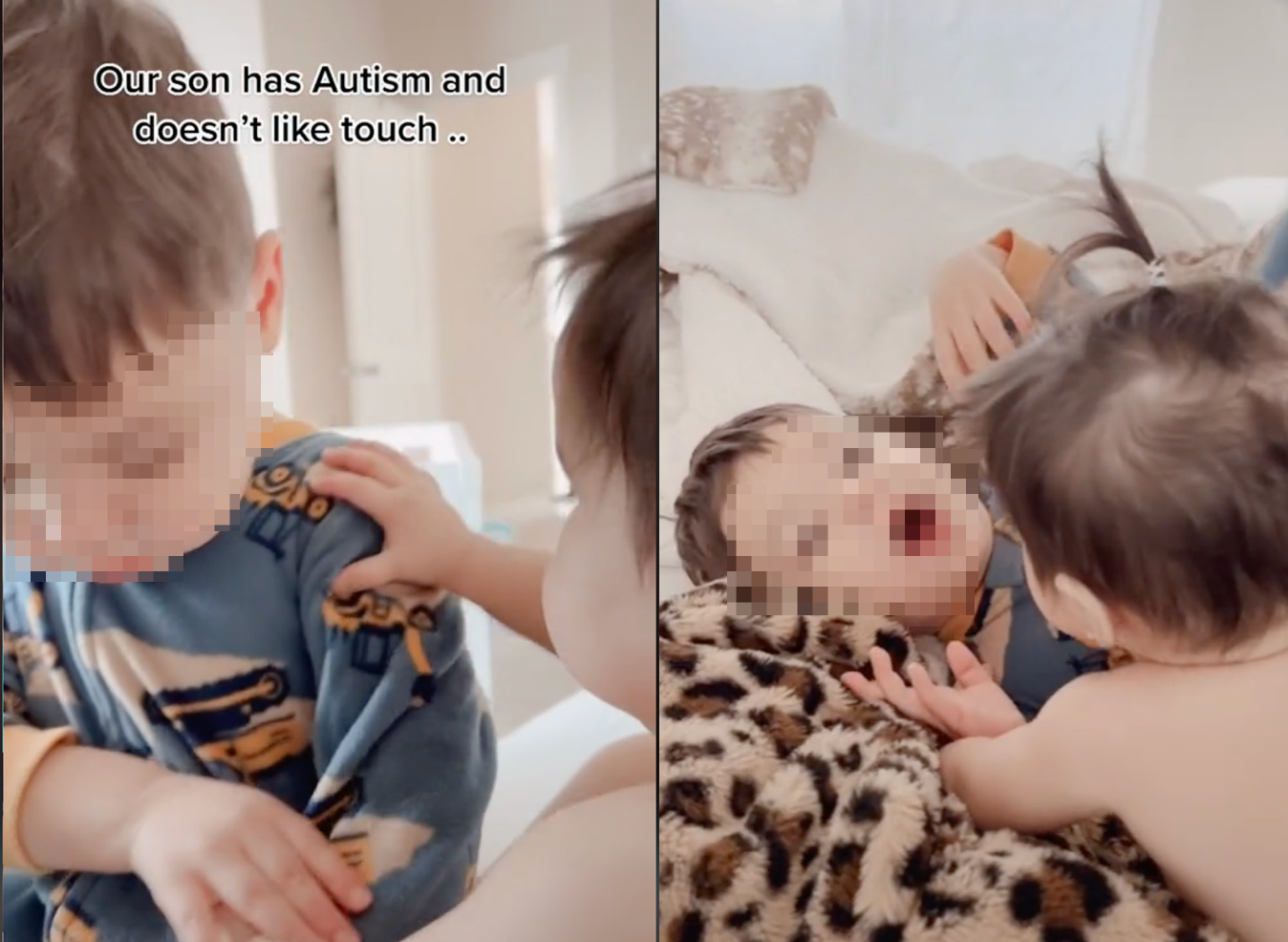The Independent's journalism is supported by our readers. When you purchase through links on our site, we may earn commission.
Toddler with autism who doesn’t like physical touch ‘slowly’ lets sister be more affectionate
‘Their bond is everything’

Your support helps us to tell the story
From reproductive rights to climate change to Big Tech, The Independent is on the ground when the story is developing. Whether it's investigating the financials of Elon Musk's pro-Trump PAC or producing our latest documentary, 'The A Word', which shines a light on the American women fighting for reproductive rights, we know how important it is to parse out the facts from the messaging.
At such a critical moment in US history, we need reporters on the ground. Your donation allows us to keep sending journalists to speak to both sides of the story.
The Independent is trusted by Americans across the entire political spectrum. And unlike many other quality news outlets, we choose not to lock Americans out of our reporting and analysis with paywalls. We believe quality journalism should be available to everyone, paid for by those who can afford it.
Your support makes all the difference.A mother has revealed how her toddler with autism, who doesn’t like physical touch, has “slowly” let his baby sister be more affectionate with him.
On TikTok, @alexjayyy06 frequently shares videos about her life as a mother of five kids, with the account dedicated to topics including how she cares for her child with autism and her journey with adoption.
In one video shared last December, the TikToker showed her son sitting next to his baby sister. At the start of the clip, her daughter could be seen repeatedly placing her hand on her big brother and clenching onto his pyjamas.
“Our son has autism and doesn’t like touch,” the text over the video reads. “But our daughter doesn’t know that and that’s okay. Because he’s slowly letting her in and he’s very gentle with her.”
As the baby sister touched her brother’s onesie, he could be seen gently pushing her hand away. However, as the clip transitioned to a different shot, the baby could be seen touching her older brother’s cheek and holding his hand, which caused him to smile.
Towards the end of the video, the TikToker’s son could be seen cuddling with his sister and giving her a hug, which he initiated.
“Their bond is everything,” the text over the video continued.
As of 1 March, the video has more than 10.4m views, with TikTok users in the comments applauding the brother and sister’s relationship.
“His baby sister is going to be the one to show him little things that will be okay,” one viewer wrote, while another said: “He was so patient and loving to her! What beautiful children you have!”
Someone else wrote: “The way he’s slowly returning the love is overwhelmingly touching. I see [nothing] but big things for your babies.”
Other TikTok users shared their own experiences with family members who have autism.
“My brother has autism and when I was baby we were like this too,” one viewer wrote. “Now that we’re older he’s always hugging me and laying his on me…You got this!!!”
In a follow-up video, @alexjayyy06 responded to a comment asking if the toddler lets his mother cuddle him or not.
The mother explained that she couldn’t hold her son until he was about one to two months old, as “he cried to be put down.” However, around nine months old, he “started giving kisses” but they would always “ask [each other] first” before doing so.
“After meltdowns sometimes, he lets us hold him,” the text over the clip reads. “He initiates touch only if wants it.”
According to the Mayo Clinic, a child with autism spectrum disorder may have “repetitive patterns of behaviour.” Some of the signs can include being “unusually sensitive to light, sound or touch.”
While there isn’t a specific strategy that works for everyone, when it comes to managing autism symptoms, treatment can include “behaviour and communication therapies” and “educational therapies,” according to the Mayo Clinic. Alternative therapies can also be sensory-based and include therapists working with autistic people who have problems tolerating “touch, balance and hearing.”
The Independent has contacted @alexjayyy06 for comment.



Join our commenting forum
Join thought-provoking conversations, follow other Independent readers and see their replies
Comments